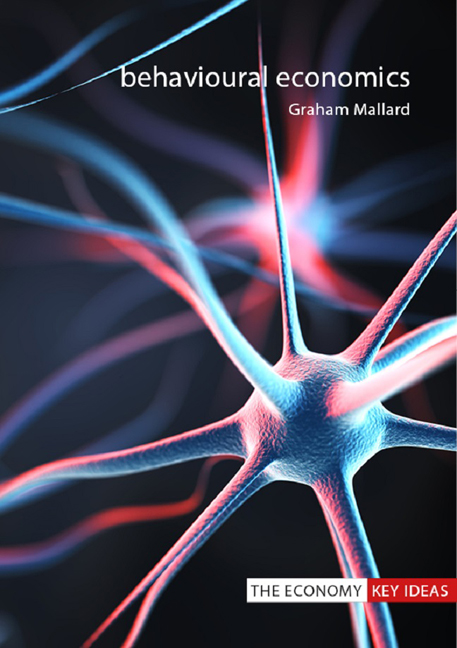5 - Participation
Published online by Cambridge University Press: 09 August 2023
Summary
Mainstream economics has tended to assume that we make our decisions in isolation: that we each selfishly seek to maximize our own utility, unconcerned with the utilities of others (see Chapter 1). That this is demonstrably not the case in many settings is the third facet of behavioural economics and the primary purpose of this chapter.
Goodwill games: the empirical evidence
Belief in the self-interested behaviour hypothesis began to weaken in the 1980s as it was increasingly challenged by findings from a number of games played in conventional laboratory experiments (see Chapter 1). These findings continue to be the bedrock of the empirical evidence that we have wider, more sociable concerns. Six such games are particularly instructive, each predominantly involving only one round and two key players: a proposer and a responder (the empirical evidence is taken from Fehr & Schmidt 2005; van Winden 2007; Camerer & Fehr 2002).
1. The Ultimatum Game: the first, seminal game identifying our social concerns (Güth et al. 1982). The game starts with the proposer receiving a set amount of money, the initial endowment, which she chooses to distribute, however she likes, between herself and the responder. The responder then either accepts the amount he is offered, triggering the game to end with the money being divided in the manner agreed, or rejects it, causing the game to end with both players walking away with nothing. According to the model of self-interested behaviour, responders should accept any amount offered: even the smallest amount represents an increase in their wealth. Knowing this, proposers should offer only the smallest amounts, maximizing their gains. The experimental results are very different, however. Offers that represent less than 20 per cent of the initial endowment tend to be rejected by responders 40–60 per cent of the time, with the probability of rejection increasing as the offer becomes less generous. Perhaps in anticipation of this, proposers tend to make offers that represent 40–50 per cent of the initial endowments.
2. The Dictator Game (Forsythe et al. 1994). This proceeds in the same way as the Ultimatum Game but in this game the responder cannot reject the proposer’s offer.
- Type
- Chapter
- Information
- Behavioural Economics , pp. 59 - 74Publisher: Agenda PublishingPrint publication year: 2017



